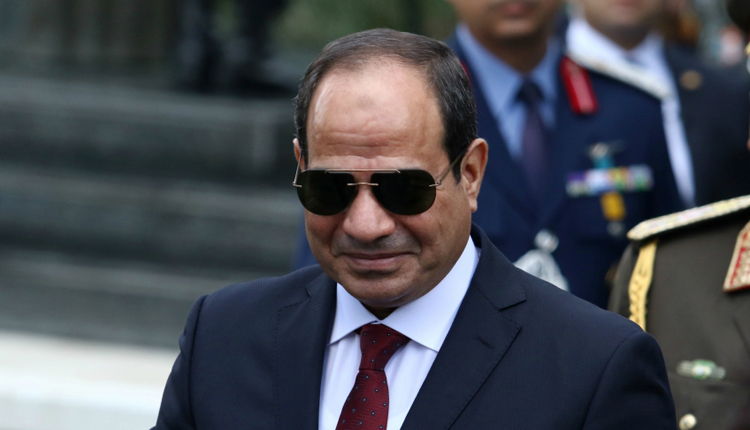Egypt’s President Abdel Fattah al-Sisi said in an exclusive interview published late Friday that there is “no role for the Muslim Brotherhood as long as [he] stays in power,” asserting that the Egyptian people would not accept the return of the Brotherhood to power, because their “unviable” ideology.
During the interview with the Kuwaiti newspaper Al-Shahed, El-Sisi spoke on issues of Arab national security, the influx of terrorists in Syria, Egypt’s relationship with Kuwait, and several domestic issues.
He talked on the importance of cooperation by the Arab States to protect Arab national security from dangers faced by the Arab nations, adding that such a relationship would create a state of deterrence to those who aim to assault the Arab world.
Sisi also affirmed the depth of Egypt and Kuwait’s special relationship, praising the role of Kuwait’s Sheikh Sabah Al-Ahmed Al-Jaber Al-Sabah in supporting Egypt in critical times.
Speaking on the Arab Spring, Sisi diagnosed the phenomena as a “wrong treatment to a wrong reality”, adding that the “constructive chaos left destruction and havoc in several Arab states.”
Sisi blamed that chaos on the Brotherhood, due to their roles in countries like Yemen and Libya, while discussing his fear of where the 36,000 terrorists involved in the crisis in Syria, which has only just started to recover from the war, would go.
“Where will they go after the war in Syria is over, especially if they will be used by intelligence bodies who seek to cause destruction in the region?” he wondered.
Sisi also reiterated the need of renewing religious discourse, stressing that religion doesn’t contradict with life.
He said that the problem falls on a false understanding of religious texts, as well as them being used incorrectly to push agendas.
The president also added that Egypt never conspired against anyone, despite offenses which emerged from “an Arab state” and other harassment from regional states.
He also spoke about economic reforms in Egypt, adding that the plan was not forced on Egypt, but was homegrown and would continue despite objections over it.
He also called on media outlets to focus on positive aspects and refrain from spreading hatred and negativity across the Arab states, which he said could be a reason for destruction and strife.
Source: Ahram Online
